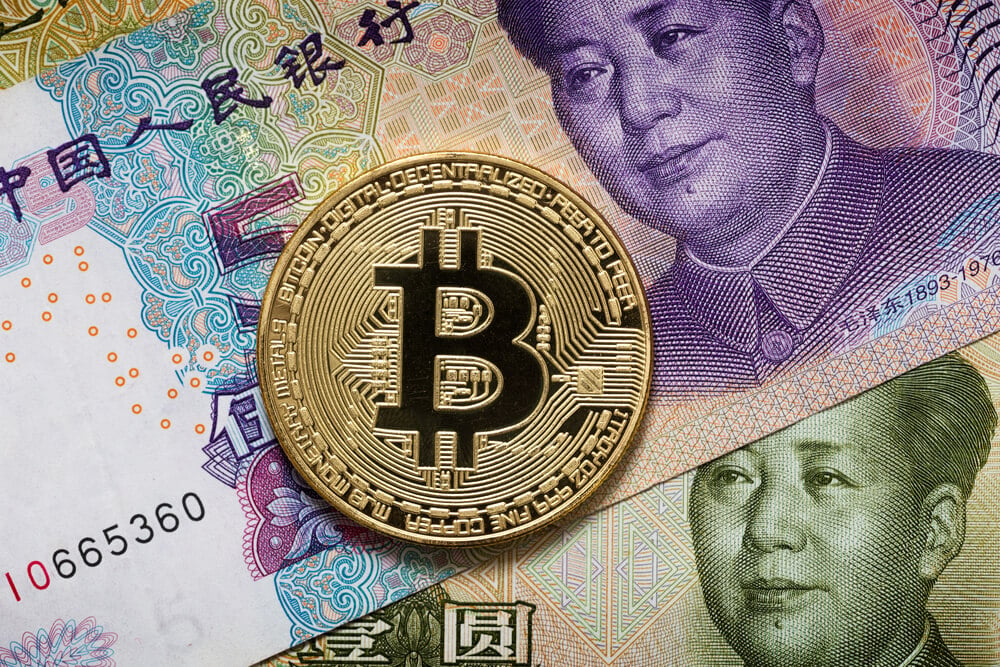China to Restrict Cryptocurrency OTC Trading and Mining, No Definite Plans Yet

According to an internal memo obtained by Bloomberg and Reuters, the People’s Bank of China (PBoC) vice governor Pan Gongsheng has encouraged the government to enforce a complete ban on cryptocurrency trading.
Far-Fetched to Claim China Triggered Market Correction
Last year, the Chinese government banned cryptocurrency exchanges from operating, closing down Huobi, BTCC, OKCoin, and other large-scale trading platforms. Consequently, major exchanges left to Hong Kong and have been operating cryptocurrency-to-fiat OTC trading platforms ever since.
The Chinese government cannot prevent Huobi Pro, BTCC, and OKEx, three of the largest cryptocurrency exchanges in the Chinese market that migrated to Hong Kong, from operating because they have based their companies outside the jurisdiction of the Chinese government.
But, PBoC governor Pan Gongsheng has suggested the Chinese government to shutdown OTC platforms and exchanges within mainland China to ensure that cryptocurrency trading ban is strictly enforced.
Today, on January 16, CCN.com reported that the People’s Bank of China (PBoC) Vice Governor Pan Gongsheng told the government:
“Pseudo-financial innovations that have no relationship with the real economy should not be supported.”
Many reports have claimed that the statement of PBoC governor Gongsheng triggered the recent drop in the market valuation of cryptocurrencies. However, if the impact of the Chinese market is analyzed, such claims are evidently false given that the Chinese cryptocurrency exchange market has virtually no volume. China has banned cryptocurrency trading in September of 2017. For more than six months, cryptocurrency exchanges have been shut down in the country.
It is far-fetched to claim that China was behind the recent correction of the cryptocurrency market, because the market has close no trading volumes.
I’ve read reports that China caused the recent #cryptocurrency market correction.
For those who have not had the chance to gain access to WI-FI since September 2017, China banned cryptocurrency trading 4 months ago. It has close to 0 volume. What impact does China have now?
— Joseph Young (@iamjosephyoung) January 16, 2018
Potential Crackdown on Bitcoin Mining
Earlier this month, trusted cryptocurrency news source in China CnLedger reported that the government is trying to restrict resources for local cryptocurrency miners to crackdown on the industry. CnLedger wrote:
“Caixin: PBoC did not hold a closed-door meeting, nor are they asking to shut down mining fields before a “deadline”. However, the regulators are indeed gradually canceling the preferential policies offered previously in electricity fees, taxes and land to some mining facilities
Regulators are asking local departments to report the current status of bitcoin mining companies under administration, and “guide the mining firms to exit in an orderly manner” by taking various measures from the aspects of electricity, land, tax, environmental protection.”
In December, South China Morning Post along with other news publications in Hong Kong reported that Chinese cryptocurrency miners have been planning to leave the local sector for many months. This week, Reuters reported that Bitmain, the largest bitcoin mining equipment manufacturer and mining pool in China, is aiming to expand to Canada.
“Of the world’s top five largest blockchain players, we have at least three or four,” David Vincent, director of business development at Hydro Quebec distribution, said.
Given that Chinese miners are eyeing expansion into Canada and European countries with cheap electricity, and traders are moving to the Hong Kong market which is being served by OKEx, Bitfinex, BTCC, and Huobi Pro, the Chinese government’s crackdown on both mining and trading is expect to have minimal impact on the global cryptocurrency industry.
Featured image from Shutterstock.